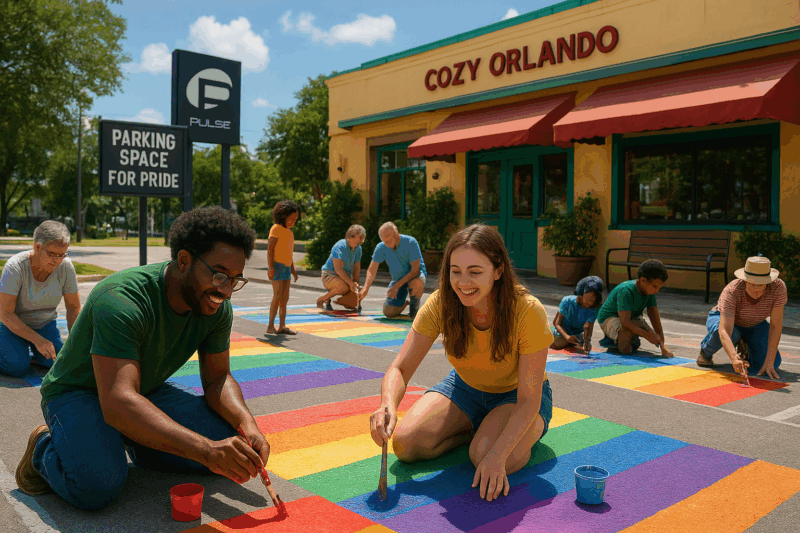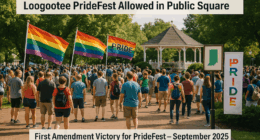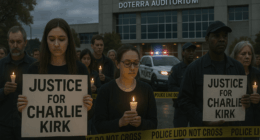Colors of Defiance Bloom in Orlando
On September 15, 2025, the parking lot outside Se7en Bites in Orlando transformed into a vibrant canvas of resistance. Restaurateur Trina Gregory opened 49 spots for artists to paint in rainbow hues, protesting Florida Gov. Ron DeSantis’ mandate erasing rainbow crosswalks. This “Parking Space for Pride — A Rainbow Connection” event drew 1,000 applicants, symbolizing the Pulse nightclub tragedy where 49 lives were lost in 2016. Amid the crackdown on LGBTQ+ symbols, Gregory’s initiative highlights a community’s unyielding spirit, turning private pavement into a beacon of love and visibility.
The Human Heart of the Protest
For Orlando’s LGBTQ+ community, the erased rainbow crosswalk outside Pulse nightclub isn’t just paint—it’s a memorial to unimaginable loss and a marker of hard-won acceptance. Trina Gregory, whose eatery fosters inclusivity, channeled grief into action, offering her lot as a safe space for expression. Artists, families, and allies gathered, their brushes dipping into colors of pride, sharing stories of resilience. “Art has always been a form of resistance and healing,” Gregory said, her words echoing the pain of repeated erasures. This event fosters healing, reminding participants that visibility combats erasure, one stroke at a time.
Facts and Figures: The Scope of the Crackdown
Florida’s Department of Transportation issued a summer 2025 memo enforcing a state code against “surface art” on public crosswalks, sidewalks, and lanes, targeting “social, political or ideological messages.” Non-compliant cities risk withheld funds. Last month, workers painted over the Pulse crosswalk overnight, prompting chalk-based recreations by protesters. Gregory’s event utilized 49 private parking spots—mirroring the 2016 death toll—and received 1,000 applications. Similar actions include Sarasota’s Harvest Church painting 500 feet of rainbow colors between buildings on September 14, 2025, defying the ban on private property.
Broader Context: A Pattern of Marginalization
The crosswalk prohibition fits into Gov. DeSantis’ broader policies targeting LGBTQ+ rights, including bans on gender-affirming care and the “Don’t Say Gay” law restricting classroom discussions on sexual orientation and gender identity in early grades. Critics view these as systematic attacks on marginalized groups, extending to Black and other communities’ celebratory art. The Pulse erasure revives trauma from America’s deadliest mass shooting at the time, underscoring how such mandates deepen wounds. Nationally, it sparks debates on free expression versus state control, with protests amplifying calls for equity.
Community Responses Across Florida
From Orlando’s parking lot to Sarasota’s church grounds, Floridians are reclaiming space through art. Pastor Dan Minor of Harvest Sarasota Church led the 500-foot rainbow painting, stating members felt “compelled to act” against the crackdown. These grassroots efforts on private land evade state oversight, turning personal properties into platforms for solidarity and challenging the administration’s reach.
What Lies Ahead: Sustaining the Rainbow Resistance
As Florida enforces its ban, communities like Orlando’s vow to persist. Gregory plans more events, emphasizing, “If they erase symbols of pride, we’ll create even more.” Legal challenges may arise, testing free speech boundaries. For the LGBTQ+ community, this fight is about preserving visibility amid adversity. Broader implications include potential shifts in state policy or national discourse on inclusive public spaces, urging allies to support through art, advocacy, and awareness.
A Spectrum of Hope and Healing
Florida’s rainbow crosswalk protest, sparked by Orlando’s colorful parking lot, reaffirms art’s power against oppression. As Trina Gregory and allies paint forward, they honor the past while illuminating a future of acceptance. In the face of DeSantis’ crackdown, these rainbows remind us: love’s colors cannot be erased.






